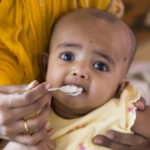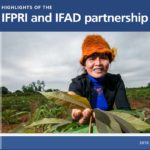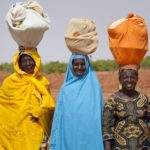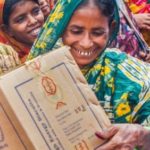This brochure highlights some of IFPRI’s major projects in Bangladesh during the past few decades and describes major new initiatives with the potential to positively influence food and nutrition security policies that benefit the poorest. Bangladesh has made enormous progress in food and nutrition security, food production, market development, employment growth, and social protection programs >> Read more
ReSAKSS: 10 Years of Promoting Evidence-Based Policy Planning and Implementation under CAADP
Ten years after its establishment, the IFPRI-facilitated ReSAKSS in Africa serves as a vital support to the implementation of CAADP. On October 18-20, 2016, the 2016 ReSAKSS Annual Conference will be held in Accra, Ghana to review and discuss the CAADP implementation.
IFPRI-WFP Partnership Turning from Consumption to Nutrition
By 2010, the collaboration between the World Food Programme (WFP) and IFPRI broadened beyond food security—defined by the United Nations as access to sufficient, safe, and nutritious food for a healthy life—to encompass nutrition security—defined as having sufficient quantity and quality of food to meet dietary needs and food preferences. This wider scope was driven by >> Read more
Highlights of the IFPRI and IFAD Partnership
This brochure presents highlights and successes of the partnership between IFAD and IFPRI. The International Fund for Agricultural Development (IFAD) and the International Food Policy Research Institute (IFPRI) were both created in response to the food crises of the 1970s. They have worked together for more than 20 years to catalyze agricultural and rural development >> Read more
IFPRI and WFP: Rethinking Food Aid to Reach the Poor
In the mid-2000s, as the World Food Programme (WFP) partnered with IFPRI to evaluate which type of transfer—cash, food, or a combination—is most effective in putting food on the table for the poor in Bangladesh, Ecuador, Niger, Uganda, and Yemen.
Improving Food Distribution in Bangladesh
One of the World Food Programme (WFP) and IFPRI’s earliest collaborations was in Bangladesh. In the 1990s, the country suffered food shortages caused by natural disasters and crop failures. In response, WFP and other donors supplied food for the government of Bangladesh to distribute. However, with growing concerns that food aid was not reaching the >> Read more
- « Previous Page
- 1
- …
- 7
- 8
- 9
- 10
- 11
- …
- 17
- Next Page »





